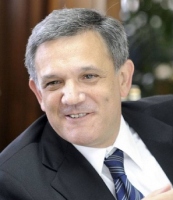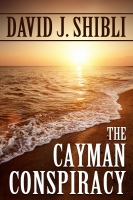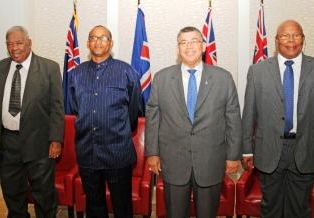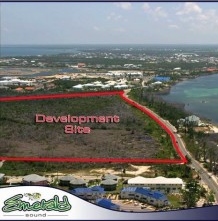Archive for July, 2011

Deputy premier travelson to Jamaica for Ag show
 (CNS): While there is still no word from the Cayman Islands Government about the deputy premier’s current travels, according to the Jamaica Information Service, she is now in Jamaica for the three-day Denbigh Agricultural and Industrial Show, which will be held this weekend at the Denbigh Showground in Clarendon. DP Juliana O'Connor-Connolly, who is also the Agriculture Minister, together with President of the Cayman Island Agricultural Society Errol Watler and other dignitaries from the Caribbean were expected to attend Saturday's (30 July) opening day.
(CNS): While there is still no word from the Cayman Islands Government about the deputy premier’s current travels, according to the Jamaica Information Service, she is now in Jamaica for the three-day Denbigh Agricultural and Industrial Show, which will be held this weekend at the Denbigh Showground in Clarendon. DP Juliana O'Connor-Connolly, who is also the Agriculture Minister, together with President of the Cayman Island Agricultural Society Errol Watler and other dignitaries from the Caribbean were expected to attend Saturday's (30 July) opening day.
O’Connor-Connolly was in London for the 57th Commonwealth Parliamentary Association Conference 21 to 28 July, but the Cayman authorities have still not acknowledged that the deputy premier is off-island or where else she may have travelled.
The Rurual Agricultural Development Authority (RADA) said its exposition at this year's Denbigh Agricultural, Industrial and Food Show will be more technologically centredand integrative than in previous years, giving patrons a more fun-filled and educational experience, the Jamaica Gleaner reported.
Under the theme 'RADA: a global approach to food security through evolving technologies', the focus is on opportunities in agriculture using high technologies. Maia Chung, communications and public relations director of the RADA, said, "Our focus on global means that the RADA management, under advisement of the Ministry of Agriculture, will be demonstrating how scientific usage of greenhouse technologies can yield more globally appealing products that stand a viable chance with produce found anywhere in the world.
"The RADA Denbigh theme will be maximising our motto: People, land and opportunity, with a high focus on technological advances that can improve farming to not just enhance efficiency and improve yields quantity and quality, but also to make the sector more attractive to young people, and any other type of player who may be classified as a non-traditional person, to enter the sector."

Corruption
Two Viewpoints on Corruption have been posted recently by Aristophanes Duckpond, and several readers have concluded that I am Aristophanes Duckpond. I am not. It is great that this person is writing about corruption, but I cannot take the credit for it. I would like to add one thing to the discussion.
The first and best defence against corruption is an electorate who recognize what a dangerous and damaging thing it is, and use their votes to throw out anyone who they think is guilty of it. By all means let’s discuss improvements to the law, but don’t give up the first line of defence.
If you look around the world at the countries which are in a total mess, most of them suffer from large scale corruption, people in power taking pay-offs or finding other ways to use their power to benefit themselves. This is not a coincidence. Of course there are other ways of ruining a country – war and famine for example — but corruption is the most common way for a country to become a hellhole for its people.
If corruption is allowed to exist, it will grow. It will destroy prosperity. Honest businesses will suffer. Investors will be discouraged; why would an investor accept an arbitrary tax system in which he has no idea how much the payments will be or how often they will have to be paid? Investors from major jurisdictions risk criminal prosecution in their own countries if they pay off people elsewhere. Institutional investors cannot risk this sort of damage to their reputation.
Corruption will destroy fairness and justice, not only in government and business but throughout society. It will also encourage lawlessness; why respect the law if your government does not? Corruption will undermine the country’s international standing and its ability to deal effectively with other countries and international organizations.
There is no upside to corruption. Once people start to think corruption is inevitable, or that a little corruption does no harm, or that corruption is OK as long as the politicians take care of business, or that corruption is something for others to worry about, their country is on the slippery slope.
Do not think a country can easily turn back if corruption gets worse. People in corrupt countries understand well enough the need to get rid of corruption; but they cannot do it. It is a quicksand.
Zero tolerance is the only effective defence. All politicians are faced by temptation. If they think voters will let them get away with corruption, be sure some will give in to temptation. There will be corruption. Do not imagine that the law will deter them if voters do not care. All countries have laws against corruption.
If you want prosperity, security and justice in your country, you need to use your vote to say “no” to corruption. If you don’t, you are at the heart of your country’s problem.

Jamaican businesses buckling from power bills
 (Jamaica Gleaner): Despite a growing backlash from business operators and ordinary Jamaicans buckling under the pressure of soaring electricity charges, the Jamaica Public Service Company (JPS) says there is no immediate relief in sight. "There is no immediate solution to reducing the cost of electricity. I am very sad to say that," JPS president and CEO Damian Obiglio told a Gleaner Editors Forum, held at the newspaper's North Street offices on Thursday. Obiglio's comments came after Dr Rosalea Hamilton, the head of the Micro, Small and Medium Enterprises (MSME) Alliance – perhaps echoing the situation of most Jamaicans – revealed that her members are faced with monthly electricity bills that threaten their survival.
(Jamaica Gleaner): Despite a growing backlash from business operators and ordinary Jamaicans buckling under the pressure of soaring electricity charges, the Jamaica Public Service Company (JPS) says there is no immediate relief in sight. "There is no immediate solution to reducing the cost of electricity. I am very sad to say that," JPS president and CEO Damian Obiglio told a Gleaner Editors Forum, held at the newspaper's North Street offices on Thursday. Obiglio's comments came after Dr Rosalea Hamilton, the head of the Micro, Small and Medium Enterprises (MSME) Alliance – perhaps echoing the situation of most Jamaicans – revealed that her members are faced with monthly electricity bills that threaten their survival.
Hamilton, who also spoke at the Forum, said every month businesses are forced to make tough decisions whether to pay JPS, their bank, their employees or any other bills that are outstanding.
"If they don't pay JPS, they get cut off. And they wait every month until the problem accumulates and the bomb goes off and ultimately that business closes because they simply cannot afford the (electricity) bills," she said.
"This whole situation (to) our members feels like economic terrorism," she added.

Walkers awards legal scholarships to five Caymanians
 (CNS): As part of its commitment to developing the finest Caymanian legal talent, Walkers has increased the number of legal scholarships that will be offered this year to an additional five talented young Caymanians. These five individuals have been awarded Merit Scholarships by Walkers to study law, primarily in the UK. They will be sponsored for the entire length of their degree courses, receiving funding for course tuition, return airfares, books, examinations and living expenses, a release from Walkers said.
(CNS): As part of its commitment to developing the finest Caymanian legal talent, Walkers has increased the number of legal scholarships that will be offered this year to an additional five talented young Caymanians. These five individuals have been awarded Merit Scholarships by Walkers to study law, primarily in the UK. They will be sponsored for the entire length of their degree courses, receiving funding for course tuition, return airfares, books, examinations and living expenses, a release from Walkers said.
"We were extremely impressed by the high standard and quality of the applications that we received this year for our Legal Scholarship Programme," said Dorothy Scott Crumbley, an associate in Walkers' Investment Funds Group and a member of the firm's Trainee Committee. "As a result we have increased our budget to take on five new sponsored students which is the most new scholarships we have ever awarded in one year," added Scott-Crumbley, herself a former Walkers scholarship recipient
Christopher Dibben, a former student of Saint Ignatius and Coral Springs Christian Academy in Florida, has already completed the first year of his LLB at the University of Exeter in the UK and will be sponsored for the remainder of his degree by Walkers.
Kayla Manderson, who majored in Literary Studies at the University College of the Cayman Islands and was formerly of John Gray High School, will be sponsored by Walkers for her law degree at the Cayman Islands Law School.
Patrick McConvey, who already has a BA in Geography Economics and Business, as well as his MA with distinction in Culture and Difference from Durham University in the UK, will study the GDL legal conversion course at Nottingham Law School.
Michael Testori, who recently completed his A-Levels at Saint Ignatius will be sponsored by Walkers to study law at the University of Kent at Canterbury in the UK, while Yannick Whorms, who has also taken A-Levels at Saint Ignatius, will be sponsored at the UK's University of Exeter.
"Our five new scholarship recipients have all demonstrated an exceptionally high standard of academic achievement and a strong desire to succeed in the challenging yet highly rewarding career of law," said Anthony Partridge, senior counsel in Walkers' Trusts Group and a member of the firm's Trainee Committee. "We are delighted to have them all on board as members of the Scholarship Programme with the ultimate aim that they go on to become Articled Clerks with Walkers and successful Caymanian attorneys."
The Walkers scholarship recipients will also receive the benefit of mentoring and support from the firm which distinguishes Walkers' Scholarship Programme from other schemes. Whenever students are on-Island, they are encouraged to visit the firm and use resources such as the law library. Each year, the students will also take part in Walkers' coveted Legal Internship, which gives themthe opportunity to spend the summer working with the firm and to gain exposure and practical life experience in a busy international law firm.
Once they have completed their legal studies, the natural next step for Walkers' scholarship recipients is to apply for an Articled Clerkship with the firm. Walkers was the first firm in the Cayman Islands to establish a comprehensive 'Articled Clerk Training Programme' and Walkers' methods have developed and been refined over more than 25 years to benefit Caymanians seeking a career in the legal profession. Each year a number of former scholarship recipients go on to become articled clerks with Walkers and eventually fully fledged attorneys.
Photo: (L-R): Anthony Partridge – senior counsel, Yannick Whorms, Christopher Dibben, Michael Testori, Patrick McConvey, Kayla Manderson, Dorothy Scott Crumbley – associate


Fictional work tells of political intrigue in Cayman
 (CNS): The debut novel of local author David Shibli tells the fictional tale of gambling, conspiracy and corruption in the Cayman Islands. It will be hitting retail outlets everywhere on 10 August and will also be availble in e-book format. The Cayman Conspiracy is a novel set in set in Grand Cayman in the late 1980s, when thenovel was actually written. At that time, Shibli says, the island was experiencing an unprecedented construction boom, money was in plentiful supply and Las Vegas was in its heyday. The author believed the manuscript was lost but, in a tale as intriguing as the book itself, it recently resurfaced.
(CNS): The debut novel of local author David Shibli tells the fictional tale of gambling, conspiracy and corruption in the Cayman Islands. It will be hitting retail outlets everywhere on 10 August and will also be availble in e-book format. The Cayman Conspiracy is a novel set in set in Grand Cayman in the late 1980s, when thenovel was actually written. At that time, Shibli says, the island was experiencing an unprecedented construction boom, money was in plentiful supply and Las Vegas was in its heyday. The author believed the manuscript was lost but, in a tale as intriguing as the book itself, it recently resurfaced.
The synopsis on the back cover reads as follows: “The year is 1989 and Joe LeRice, an expat Englishman has it all, a beautiful wife, a successful business and a peaceful life in the idyllic Cayman Islands. As he enjoys the fruits of his labor, he is disturbed to learn that the world of casino gambling has cast its eye on the country he now calls home. A consortium from Las Vegas visits Grand Cayman where gambling is illegal and Joe observes as the wheels of politics, lubricated by lust and cash, threaten to turn this tranquil place into yet another gambling Mecca.
"After witnessing the attempted suicide of a close family member who is involved in negotiations with the consortium, Joe suspects that they are ruthlessly determined to have their way at any cost. He goes to Vegas in a desperate attempt to hamper their efforts and on the way, he meets young Bobby, a streetwise hooker whose toughness becomes invaluable to Joe’s mission as he comes face to face with demons that almost destroyed him as a young man.”
There are also some very unusual circumstances surrounding the original manuscript which was actually written in Uttoxeter in the UK between 1989 and 1990. The author sent a copy to a publishing house in London and kept a copy for himself. After a brief spell on the Brac as an assistant divemaster in 1990, the author spent the next year homeless on the streets of Manhattan where he would push hotdog carts to survive. During this time, he gave up on his dream to be a published author and quietly discarded his copy of the manuscript.
“I thought there were no more copies left and got on with life, I did a spell as a poultry butcher in the UK, eventually becoming a line supervisor. I returned to work on the Brac at Public Works for 2 years where I would paint government properties and even the white lines on the road with a 3 inch roller," Shibli said.
"In 1995, thanks to the efforts of two MLAs, Capt. Mabry Kirkconnell and McKeeva Bush, I returned to Bradford University to complete my degree in Electrical and Electronic Engineering, achieving first class honoursand winning the Hawker Siddeley Switchgear Prize in 1997 for Power Electronics. My project was in solar power and I’ve dreamed about seeing it become ubiquitous in Cayman.”
Earlier this year, more than 20 years after it was written, a friend of the family in the UK found the other copy of the manuscript during a spring clean. It had been loaned to him after returning from the publishers. During a recent visit in early May this year to the UK to participate in The Sheffield Half Marathon, Shibli was reunited with his original work.
“I was almost afraid to read it, not really knowing what to expect. I’d forgotten a lot of the story, but after a week or so, I plucked up the courage and was really surprised at these characters who were still clamouring to be heard after all this time. I decided there and then to publish, first digitizing the work and then giving copies to friends who are avid readers. The reaction was so positive that I pressed ahead and here we are 2 months later,” he said.
The pdf format is available now at www.thecaymanconspiracy.com with the first 5 chapters available as a free sample.
Amazon Kindle and all other e-book reader formats will available in the next few days.
The first batch of paperbacks will be available on island on the 10 August which coincidentally is the author’s 46th birthday.

Royal wedding stamps to be released next week
 (CNS): Philatelists can now ready themselves for the much-anticipated stamp release from the Cayman Islands Postal Service of the wedding of Prince William and Catherine Middleton, which is set for 4 August. The commemorative issue simply titled, “Royal Wedding”, includes four stamps — 25¢; 75¢; 80¢ and $2. Each stamp highlights a part of the wedding. The 25¢ depicts the first kiss; the 75¢ shows the carriage ride back to Buckingham Palace; the 80¢ has the happy couple exiting Westminster Abbey after the ceremony, and the $2 stamp shows the father of the bride escorting her down the aisle. The Royal Wedding, which took place on 29 April in Westminster Abbey, enthralled most of the world, a release from the CIPS said.
(CNS): Philatelists can now ready themselves for the much-anticipated stamp release from the Cayman Islands Postal Service of the wedding of Prince William and Catherine Middleton, which is set for 4 August. The commemorative issue simply titled, “Royal Wedding”, includes four stamps — 25¢; 75¢; 80¢ and $2. Each stamp highlights a part of the wedding. The 25¢ depicts the first kiss; the 75¢ shows the carriage ride back to Buckingham Palace; the 80¢ has the happy couple exiting Westminster Abbey after the ceremony, and the $2 stamp shows the father of the bride escorting her down the aisle. The Royal Wedding, which took place on 29 April in Westminster Abbey, enthralled most of the world, a release from the CIPS said.
The wedding was a thrilling display of British pageantry that attracted a huge worldwide audience. Not only did crowds line the streets of London, but hundreds of millions of people are said to have watched the marriage of Prince William and the newly anointed Duchess of Cambridge.
It was no different in the Cayman Islands, as royal revelers hosted pajamas parties to watch the wedding.
Street parties across the UK left little doubt that much of the British public wanted to celebrate the Royal Wedding. The guest list, estimated at 1,900 people, included foreign royals, dignitaries and celebrities, who gathered first at Westminster Abbey, followed by members of the Royal Family. At 10:10 a.m., Prince William, accompanied by his best man, Prince Harry, left Clarence House for the Abbey. A short 50 minutes later, Catherine left The Goring Hotel with her father and that was the much-anticipated, first glimpse of her wedding dress.
Cayman Islands Postmaster General Sheena Glasgow said from the moment Prince William and Catherine Middleton announced their engagement, they seemed to catch the imagination of the world. “From the beginning, it seemed that most of the world wanted to celebrate the occasion with the Royal Couple,” she noted.
“While I know there has been a four-month lapse between the wedding and this stamp issue, there were numerous official approvals to go through, including from the Royal Couple themselves,” she explained.
“We hope that our stamp release will satisfy our royal collectors and those who want a souvenir of the happy occasion. The images are colourful and capture key aspects of the wedding.”
The Royal Wedding stamps go on sale at all post offices on Thursday, 4 August. For big orders it may be best to stop by Philatelic Bureau in Seven Mile Beach Post – West Shore Plaza or the General Post Office.

Mac: UK must leave us alone
 (CNS): Cayman Premier McKeeva Bush has told other Overseas Territories leaders that the OTs are handcuffed by the UK. As reported by the local media in the Virgin Islands, at the opening ceremony of the recent Pre-Overseas Territories Consultative Council (OTCC) meeting Premier Bush said that, while the Overseas Territories (OT) appreciate the UK’s utmost concern for governors in the countries, the UK must leave them alone, and he revealed his intention to tell this to the Cayman governor and Britain.
(CNS): Cayman Premier McKeeva Bush has told other Overseas Territories leaders that the OTs are handcuffed by the UK. As reported by the local media in the Virgin Islands, at the opening ceremony of the recent Pre-Overseas Territories Consultative Council (OTCC) meeting Premier Bush said that, while the Overseas Territories (OT) appreciate the UK’s utmost concern for governors in the countries, the UK must leave them alone, and he revealed his intention to tell this to the Cayman governor and Britain.
StandPoint.com reports that in his remarks on 22 July Bush said, “At the same time, the whole cliché still rings true that it is better to teach a man to fish than to give him the food,” adding that the OT welcomes tactical training in any area of mutually agreed need."
Bush also told fellow delegates, “I will say to my governor and to the United Kingdom, leave us alone to do what we do best. Don’t ask if we can do it. Just see where we came from. We came from nothing to what we have. All we need is not for you to handcuff us, all we need is for the United Kingdom to help us and show us the way and in showing us the way, do not handcuff us because the same good governance (and I don’t care how people feel when it comes to that because it’s an issue that is strong to my mind) for 60 million people will not always determine the facts of good governance on my Island. The culture is different.”
Bush went on to ask the attendees of the Pre OTCC to bear in mind that the representatives of the OT are the best advocates. “Let us also remember that our voices will always be strongest when they are shared and steadfast.”
TheOTCC meeting brought together heads of government from the United Kingdom Overseas Territories (UKOTs) who met on Scrub Island from July 22 through 24 to deliberate on critical issues affecting their respective Territories. Present were the Virgin Islands Premier and Chairman of the pre-OTCC meeting Ralph T. O’Neal, Cayman Islands Premier McKeeva Bush, Chief Minister of Anguilla Hubert Hughes, Minister of Communications, Works and Labour for Montserrat Charles Kirnon and their accompanying delegations.
Photo above: L-R Ralph T. O' Neal, Charles Kirnon, McKeeva Bush, Hubert Hughes

Opponents pack meeting
 (CNS): A sometimes-heated public meeting on the Emerald Sound development in which architect Burns Conolly explained the plans in detail to an audience of about 90 did little to mollify the mostly opposition crowd. Representing the developer RC Estates, Conolly spent three hours Thursday talking about the projectand answering questions, but the two sides remained far apart by the end of the evening. The plan for the 90 acres of land calls for 81 home sites and about 160 apartments, significantly less than the approximately 400 homes and more than 1,300 apartments that the zoning would allow, he said.
(CNS): A sometimes-heated public meeting on the Emerald Sound development in which architect Burns Conolly explained the plans in detail to an audience of about 90 did little to mollify the mostly opposition crowd. Representing the developer RC Estates, Conolly spent three hours Thursday talking about the projectand answering questions, but the two sides remained far apart by the end of the evening. The plan for the 90 acres of land calls for 81 home sites and about 160 apartments, significantly less than the approximately 400 homes and more than 1,300 apartments that the zoning would allow, he said.
He said that Emerald Sound would as a result be “extremely low-density”, with the developer reaping less than 40% of its development potential, but he people there were not convinced.
Of major contention is the plan to realign a section of South Sound Road alongside the development as well as fears of flooding and nearby beaches turning red from the peat found on the site. Opponents believe that the realignment of the road is being planned to expand seaside lots across from Emerald Sound, an assertion Conolly vigorously denied, saying that the 22 sites long ago received Planning permission and pre-existed the proposed road changes.
Audience members brought up this issue several times during the question-and-answer session, and many openly challenged Conolly’s explanations. He repeatedly pointed out that there were three reasons to move the road: to create bicycle and pedestrian lanes, to accommodate a roundabout that the National Roads Authority has planned for the junction of South Sound Road and Old Crewe Road, and to enable one main entrance for the seaside lots instead of 22 separate driveways. Residents insisted the plan was to increase the size of the lots.
Conolly also explained that Emerald Sound, which would not be less than seven or eight feet above sea level at any point, would not present a flood risk to the surrounding area, that in fact, a model simulating increasing tides shows every site except that development ending up inundated, with no water flowing out. In addition, plans include an eight to 10 acre swale (basically a depression), between the development and the adjacent Bel Air Drive, which will direct any runoff from that land into the sea.
He pointed to a surveyor’s report that showed the path of the proposed canal that will be cut to the sea has only a shallow layer of peat, just below the surface level, meaning that the water flowing through will not be turned brown from exposure to peat.
Conolly touched on other contentious aspects of the development, but the increasingly vocal crowd continually challenged his explanations, with some opponents responding with shouts and anger, as the meeting reached its third hour.
The potential for polluting the waters of South Sound was another cause of concern for the residents. Mike Godfrey pointed to a Department of Environment review of the Emerald Sound coastal works, which discussed a flushing analysis of the proposed canal system in the development.
Pointing out that every time the tide goes in and out, there will be pollution, he said that according to the DOE report the dilution of the pollutants should be 10% after four days. “Yours is up to 75%. Now don’t tell me they can be that wrong; they’re the people we have to depend on. If yours was even 20% it wouldn’t be bad but yours is 75%. This is going to pollute the entire sound.
You will have a gigantic 125-foot canal polluting until the end of time.”
Conolly took issue with the report, saying it didn’t take into correct account a test study done on the depth of the canal.
During a further discussion on the shifting of the road, a question was raised about the fact that the developers would be taking over crown land after the work was completed. This noticeably darkened the mood of the meeting, with one person angrily telling Conolly, “You have to stop acting like you are doing us favours because you are not.”
Katrina Jurn, one of the more outspoken critics of the development, told Conolly there was a way to get everyone to drop their objections. “Why don’t you do it without the canals?” she asked, saying that the both the landside and seaside aspects of the development would be beautiful on their own, and even someplace she might consider living.
“We wouldn’t be here tonight and they would be no debate,” Jurn added, saying they would be happy to have the developer go ahead with Emerald Sound without the canals.
Crisis Centre waiting for promised cash from Travers
(CNS): The prize money for a spoof book award promised by Anthony Travers to a local Cayman charity chosen by author Nicholas Shaxson back in May has still not been paid. The tongue-in-cheek prize in the “Fairytale” category was announced in a press release circulated on behalf of the Cayman Islands Stock Exchange by Travers, its chairman, in which he revealed his intention to give $1000 to a local charity chosen by the author for his book, Treasure Islands, Tax Havens and the Men who Stole the World. Describing it as a “sublimely entertaining” account of bad guys, tax wrongdoers and hidden treasure, Travers said Shaxson was a worthy winner.
Shaxton, while defending his book against Travers’ criticisms in his blog, treasureislands.org, on 6 June, and despite the obvious gibe, took Travers at his word and announced that his chosen charity was the Cayman Islands Crisis Centre, but added, “This award, from the stock exchange of the world’s fifth or sixth biggest banking centre, seems tiny. How about multiplying that $1,000 by ten?”
Following this announcement in June, CNS quoted CICC Board Chair Len Layman, who offered his thanks to both men and said it would be spent wisely. “I would like to thank Mr Shaxson for choosing the Centre as the charity to receive the proceeds from this spoof book award as well as to Mr Travers for the award. While the debate which Mr Shaxson and Mr Travers are having is bringing the eyes of the financial world on the Cayman Islands we, the Cayman islands Crisis Centre, welcome the much needed donation and hope that it will also help to bring awareness of the plight of victims of Domestic Abuse worldwide,” he said.
“We can assure both of these financially savvy individuals that the money will be well spent, helping to serve the needs of victims of domestic abuse and their children here in the Cayman Islands. On behalf of the Board of Directors and the clients of The Cayman Islands Crisis Centre I say, thank you both."
However, the Crisis Centre says that according to their records they have not received a donation from Travers to date. Shaxton has pointed out that to them that he made plain whom he nominated. “It's a little light-hearted in places, but it makes the point clear,” he said and noted that the story was picked up in the UK's Telegraph newspaper. “I realised recently that he had not yet paid the money, and I asked him to do so. He (well, the Stock Exchange) replied, saying he/they would send me some forms to fill in before this could happen. I have not received anything from him so far,” he said. (Update: Shaxson says he has now received the forms from the Stock Exchange by traditional mail, which must be signed in the presence of a notary public and mailed back.)
CNS has emailed Travers to ask when he is going to present the Crisis Centre with the money but has not received a response.
In Treasure Islands, Shaxson, a member of the Tax Justice Network, describes tax havens as “the silent battering rams of financial deregulation” that have forced other countries to remove financial regulations, to cut taxes and restraints on the wealthy, and to shift all the risks, costs and taxes onto the backs of the rest of us. “In the process democracy unravels and the offshore system pushes ever further onshore. The world’s two most important tax havens today are United States and Britain,” he states.
Announcing the book award, Travers described the book as a “work of intricate speculation” in which the author managed “to layer mischaracterization on misrepresentation on half truth and omission to create a fabulous tale of exuberant derring-do without feeling the slightest obligation to resort to the research or evidence presented by the IMF the OECD, IOSCO the FATF or indeed the US General Accountability Office.” Travers said Shaxson had created a tale of legend, allegory and fantasy making him the clear favourite in the new spoof award’s fiction category. “We look forward to hearing from Mr Shaxson with his designated charity,” added Travers. “It’s a rattling good light read, hugely entertaining and, my goodness, very, very, humorous.”
The author responded to the sarcastic swipe at his book in his blog: “Travers has serious form in terms of vague mudslinging in my general direction, without actually saying what, specifically, he objects to. (My guess here is that Travers has at last got around to actually reading Treasure Islands – which is why he suddenly uncorked himself again in late May, over four months after the book was launched. Although – as I explain shortly – I’m not completely sure that he really has read it.)”

Fragmented sleep ‘harms memory’
 (BBC): Broken sleep affects the ability to build memories, a study of mice suggests. The Proceedings of the National Academy of Science findings could help explain memory problems linked to conditions including Alzheimer's and sleep apnoea. The Stanford University research found disrupting sleep made it harder for the animals to recognise familiar objects. A UK sleep expert said the brain used deep sleep to evaluate the day's events and decide what to keep. This study looked at sleep that was fragmented, but not shorter or less intense than normal for the mice. It used a technique called optogenetics, where specific cells are genetically engineered so they can be controlled by light.
(BBC): Broken sleep affects the ability to build memories, a study of mice suggests. The Proceedings of the National Academy of Science findings could help explain memory problems linked to conditions including Alzheimer's and sleep apnoea. The Stanford University research found disrupting sleep made it harder for the animals to recognise familiar objects. A UK sleep expert said the brain used deep sleep to evaluate the day's events and decide what to keep. This study looked at sleep that was fragmented, but not shorter or less intense than normal for the mice. It used a technique called optogenetics, where specific cells are genetically engineered so they can be controlled by light.